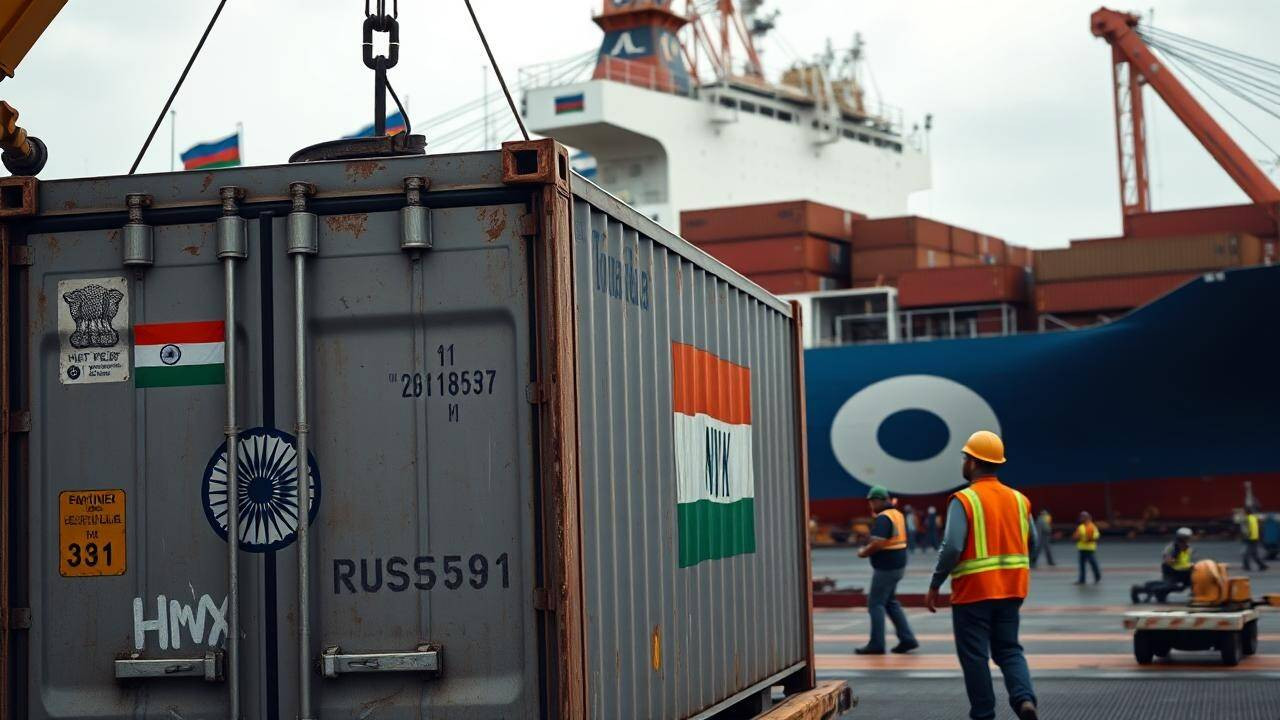An Indian firm, Ideal Detonators, confirmed exporting $1.4 million worth of HMX to Russia, asserting it was for civilian use and compliant with Indian regulations. Despite HMX’s military applications, the company insists the shipment was for industrial purposes.
The Curious Case of the Cargo Ship: Sanctions, Russia, and an Indian Company’s Explanation
A shipment from India bound for Russia is raising eyebrows and sparking debate about the ever-tightening web of international sanctions. At the heart of the matter is an Indian company, Solar Industries India, defending its export of what some fear could be dual-use goods. The shipment, intercepted in a European port, has ignited a fiery discussion: what exactly was on board, and was it intended for purely civilian use, as the company claims? Let’s unpack this complex situation.
The backdrop, of course, is the ongoing conflict in Ukraine and the extensive sanctions imposed on Russia by Western nations. These measures aim to cripple Russia’s ability to wage war by restricting its access to critical technologies and materials. The very mention of “explosives” bound for Russia immediately raises red flags, and rightly so.
Solar Industries India insists that the materials in question are destined for civilian applications, specifically for mining operations and infrastructure development. They emphasize their commitment to adhering to all international regulations and export controls. However, the sensitivity of the situation demands a closer look. Dual-use goods, those with both civilian and military applications, are a particularly contentious area. Could materials ostensibly intended for mining also be used in the production of munitions or for other military purposes? That’s the question authorities are grappling with.
The interception of the shipment in a European port highlights the increased vigilance surrounding trade with Russia. Western governments are actively monitoring trade flows and scrutinizing shipments for potential violations of sanctions. This incident underscores the challenges faced by companies operating in a globalized world, where supply chains are complex and the potential for misinterpretation is high. The image below further emphasizes this.

Examining the Shipment: Explosives for Civilian Use?
The specific nature of the “explosives” is crucial. While Solar Industries India maintains they are standard materials used in mining and infrastructure, the devil is in the details. What types of explosives are involved? What are their chemical compositions? Could these materials be easily converted or adapted for military applications? These are the questions that customs officials and security experts are undoubtedly trying to answer.
The company’s reputation is also at stake. Solar Industries India is a major player in the explosives industry, and any association with sanctions violations could have significant repercussions. They are undoubtedly keen to protect their image and maintain their access to international markets. Transparency and cooperation with investigating authorities are paramount in this situation.
Navigating the Sanctions Maze: A Tightrope Walk for Businesses
This incident serves as a stark reminder of the complexities and risks associated with doing business in a world shaped by geopolitical tensions and economic sanctions. Companies must conduct thorough due diligence on their customers and end-users to ensure that their products are not being diverted for illicit purposes. The cost of non-compliance can be severe, including hefty fines, reputational damage, and even criminal charges.
The debate surrounding this shipment highlights the inherent difficulties in enforcing sanctions and preventing the flow of dual-use goods. It requires a multi-layered approach, involving cooperation between governments, customs authorities, and the private sector. Enhanced monitoring, stricter export controls, and increased transparency are all essential elements of an effective sanctions regime.
The case of the intercepted shipment also underscores the need for clear and consistent communication. Companies must be prepared to proactively address any concerns about their business activities and to demonstrate their commitment to complying with all applicable regulations. Silence or evasiveness can easily be interpreted as a sign of guilt, even if the company is acting in good faith.
The Bottom Line: Increased Scrutiny on Indian Exports to Russia
The situation surrounding this intercepted shipment is a developing story, and its ultimate outcome remains uncertain. However, one thing is clear: trade with Russia is under intense scrutiny, and companies must be prepared to navigate a complex and ever-changing landscape of sanctions and regulations. The incident underscores the importance of due diligence, transparency, and clear communication in mitigating the risks associated with international trade. Moving forward, companies involved in exporting potentially sensitive materials to any region must prioritize compliance and be ready to provide comprehensive documentation to demonstrate the legitimate end-use of their products. The global watchdogs are paying attention, and the cost of misjudgment can be substantial.







